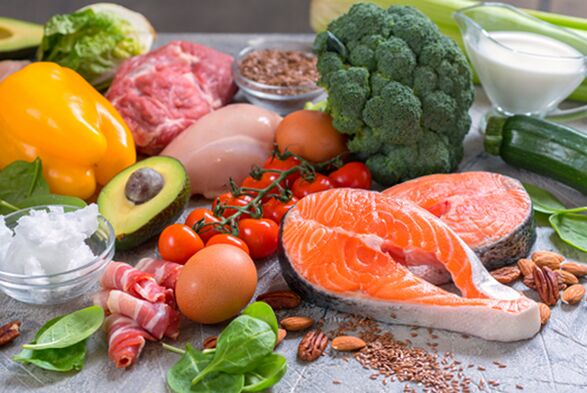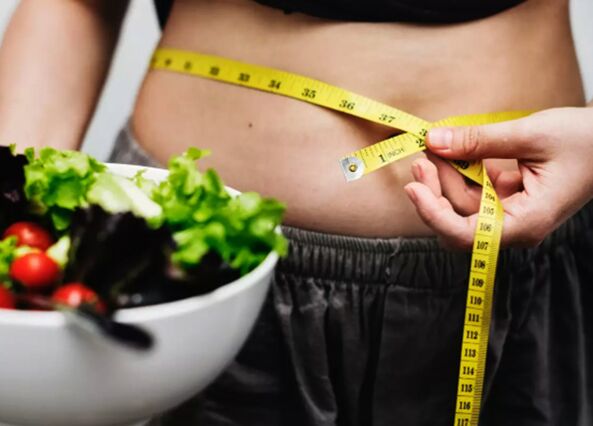
Who is responsible for the amount of proteins, fats and carbohydrates in the product? Of course, for those who follow a different diet. Thus, people who follow the low-carbon option, first of all, pay attention to the fact that the carbohydrate in the product does not exceed a certain amount.
Who needs a low carb diet and why?
Such a diet is to reduce or eliminate carbohydrate-rich foods altogether. Originally the diet was designed for athletes. Nowadays, this food is mostly consumed by 3 categories of people:
- Those who want to lose weight.
- Diabetics.
- Athletes themselves.
Carbohydrates in food are sugar. It doesn’t matter that some high-fat foods aren’t sweet at all. When processed in the body, various carbohydrates are converted into sugar. Therefore, people with diabetes and people with high blood sugar follow a carbohydrate-free diet.
Scientists have also shown that excess sugar is stored in the human body in the form of fat. Therefore, those who want to lose weight also use a low-carb diet. Athletes just need to stay in good shape. Other names for low carbohydrates are ketone or protein regimes.

When people eat a low-carb diet, they reduce their consumption or eliminate it from their diet:
- Bread products.
- Sugar and various sweets.
- Some vegetables: potatoes, pumpkin.
- Sweet fruits: bananas, apricots and berries: cherries, grapes.
- Storage of juices.
- Some cereals: rice.
- Pasta.
And this is not an exhaustive list. But do we need a similar diet? Because each of them has its pros and cons.
Diet Pros
Nutritionists and general therapists recommend a low-carbohydrate diet only for people who are losing weight and getting sick. You can also limit carbohydrates for normal weight loss. But in general, such a diet has many advantages:
- Body support. Anyone, not a sick person, should be healthy, because an excess of carbohydrates acts like a slow bomb. Regular overeating of carbohydrates gradually destroys the body.
- A low-carb diet increases the body's sensitivity to insulin, so the pancreas produces less insulin. This will help protect against incurable disease - diabetes. Therefore, a big plus of the diet is the prevention of serious illness.
- A plus for those who want to lose weight - eat more foods without carbohydrates and still lose weight. Some people find it difficult to limit their diet, so a carbohydrate-free diet is a great option. Meat, for example, does not contain carbohydrates.
- You can lose weight in a short time.
- No need to go to a specialty store or buy anything special for low-carb foods. All products are sold in simple supermarkets near the house in any town or village: I bought it and bought it.
- The cost of labor. It doesn't cost much to eat. You can buy the usual healthy foods you are used to: meat, fish, vegetables, dairy products. On the contrary, you can save money by giving up some sweets.
- Even low-carb menus can be easily found on the internet. There is a lot of information with tables, recipes and other useful tips. You don't have to think about what it is and how. And go to nutritionists to create more diets. Just download and print your daily diet.
- You can stick to such a diet for a very long time. Over time, the craving for sweets disappears, and after a few years, normal doses of sugar appear to be sugary.
- This diet is considered the easiest and "mildest" in contrast to others. If everything is done correctly, there will be no stress for the body and we will avoid flaws.

Minuses
It is no coincidence that students are told to eat chocolate before the exam. Sugar is energy and sweets are a quick way to get it. Therefore, not everyone likes a low-carb diet. Some people need to keep in mind the downsides of the diet and stay away from low carb diets.
- Workers with heavy mental or physical labor should not engage in such a diet. The first and the second need energy that a person without carbohydrates cannot absorb.
- Patients with diabetes should limit the use of carbohydrates, but be aware that their complete absence can lower blood sugar levels - hypoglycemia, which is very dangerous.
- Such a diet and frequent sufferers of cancer should be avoided. It is recommended to drink a lot of water on a low-carb diet, which can lead to more tumors.
- You can't follow this diet for children and teenagers (except for obese ones). During growth, the body needs a normal amount of carbohydrates for development.
- Pregnant women and nursing mothers do not go on a diet. You may want to lose weight after giving birth, but your baby's health and development are important.
- On a low-carb diet, a person eats more protein and fat. It is harmful for people with heart and kidney disease. Kidney stones are included in the diet.
- Sometimes the regimen is accompanied by headaches and severe diarrhea. If these side effects occur, you should stop eating carbohydrate foods.
- With a low-carb diet, when you limit sugary foods, the desire for them becomes very strong. Not everyone can resist this desire, and as a result, they fail, and all the benefits of the diet are lost.
- Due to drowsiness at the beginning of the diet, it should be used with caution by drivers and those responsible for important facilities.
A result
Any diet, including a low-carbohydrate diet, is stressful for the body, so do not immediately give up sugary foods. Switching to a carb-free diet should be done smoothly, watching your reaction. Only in this case will there be some advantages of the diet and it will be possible to avoid all the disadvantages listed. You need to find out if a low-carb diet is right for you.














































































